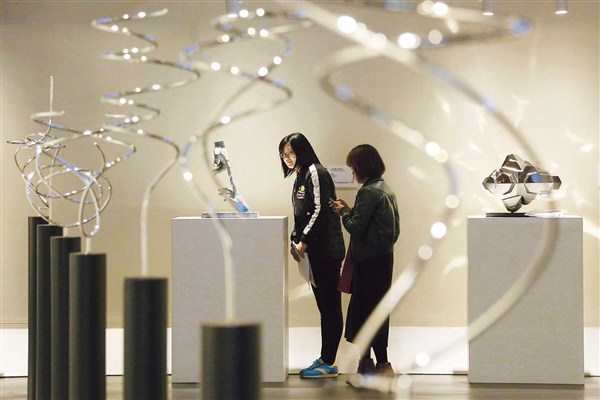
Shanghai Today
University honors Nobel laureate Lee - December 02, 2016
李政道研究所落户上海交大 吸引优秀科学家

SHANGHAI Jiao Tong University yesterday launched its Tsung-Dao Lee Institute to mark the 90th birthday of one of the first Chinese Nobel laureates and to promote physics research and education.
The institute will concentrate on some of the fundamental challenges in understanding the extremes of the universe and support Shanghai’s aim to build a global innovation center for science and technology, the university said.
It will provide a platform for world-class scholars and scientists to communicate and cooperate with young scientists to cultivate future experts and it aims to produce a series of major research findings on human civilization and social development.
The center is sponsored by China’s Ministry of Education, the Ministry of Science and Technology, the National Science Foundation of China and the government of Shanghai.
It will organize a series of seminars and conferences focusing on popular issues in physics and inviting world experts for discussion and cooperation.
Currently, the institute is considering research into particle physics, quantum physics, cosmology and technology for information science and computing.
Lee, a Chinese-American physicist, won the Nobel Prize in Physics in 1957 at the age of 30 with Franklin Chen Ning Yang for their work on the so-called parity laws which has led to important discoveries regarding the elementary particles.
Lee, who was born in Shanghai, and Yang were the first Chinese laureates.
The institute will concentrate on some of the fundamental challenges in understanding the extremes of the universe and support Shanghai’s aim to build a global innovation center for science and technology, the university said.
It will provide a platform for world-class scholars and scientists to communicate and cooperate with young scientists to cultivate future experts and it aims to produce a series of major research findings on human civilization and social development.
The center is sponsored by China’s Ministry of Education, the Ministry of Science and Technology, the National Science Foundation of China and the government of Shanghai.
It will organize a series of seminars and conferences focusing on popular issues in physics and inviting world experts for discussion and cooperation.
Currently, the institute is considering research into particle physics, quantum physics, cosmology and technology for information science and computing.
Lee, a Chinese-American physicist, won the Nobel Prize in Physics in 1957 at the age of 30 with Franklin Chen Ning Yang for their work on the so-called parity laws which has led to important discoveries regarding the elementary particles.
Lee, who was born in Shanghai, and Yang were the first Chinese laureates.


